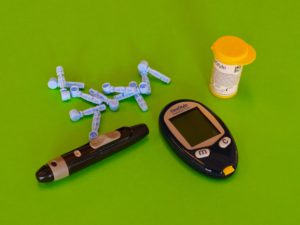Diabetes is a difficult disease. In my endocrinology practice, I see many diabetes patients on insulin treatment. They have to monitor glucose levels carefully and inject insulin multiple times a day. The injection is, of course, not a pleasant thing to do. But sometimes patients are resistant to starting insulin because of myths about insulin.
- Does insulin cause diabetes complications or death?
In many type 2 diabetes patients, insulin injection is necessary because their diabetes is more advanced and uncontrolled. Uncontrolled advanced diabetes with long duration is more likely to be associated with diabetes complications. Insulin actually improves diabetes control and thus reduces the risk of further complications (except for some complication associated with too rapid improvement in blood glucose control) but is not going to reverse already developed significant complications. However, insulin carries the risk of lowering blood sugar too much (hypoglycemia). Low blood sugar level is associated with an increased risk of death. Therefore, when insulin is used, blood glucose level should be monitored with adjustment of insulin doses as necessary.
- Once I start insulin, I will have to use it forever?
In many cases, insulin injection becomes necessary because of irreversible large decline in pancreas insulin production. Then, patients have to continue insulin injections to control diabetes. In some cases, pancreas insulin production is temporarily suppressed and recovers after improving diabetes control using insulin or losing weight. This is usually observed only during the early years of diabetes. As the pancreas’s insulin production recovers, the amount of insulin injection required to control glucose levels dramatically goes down. The principle of management in this situation is still to monitor glucose levels and adjust insulin doses as necessary.
- Insulin does not control my diabetes?
Insulin is the surest way to improve diabetes control. Most likely the dose is not enough. If you use only long-acting insulin, you may need short-acting insulin before meals. However, there is a rare situation where insulin action is blocked by antibodies.
- Insulin injection is really painful?
Most of the time, insulin injection does not hurt much because the needles are very small. Sometimes shorter needles can reduce the discomfort of injection too.
- Does insulin cause weight gain?
More likely than not, this is true. Insulin helps our body store energy in fat tissue. Controlled calorie intake is important to prevent too much weight gain.


